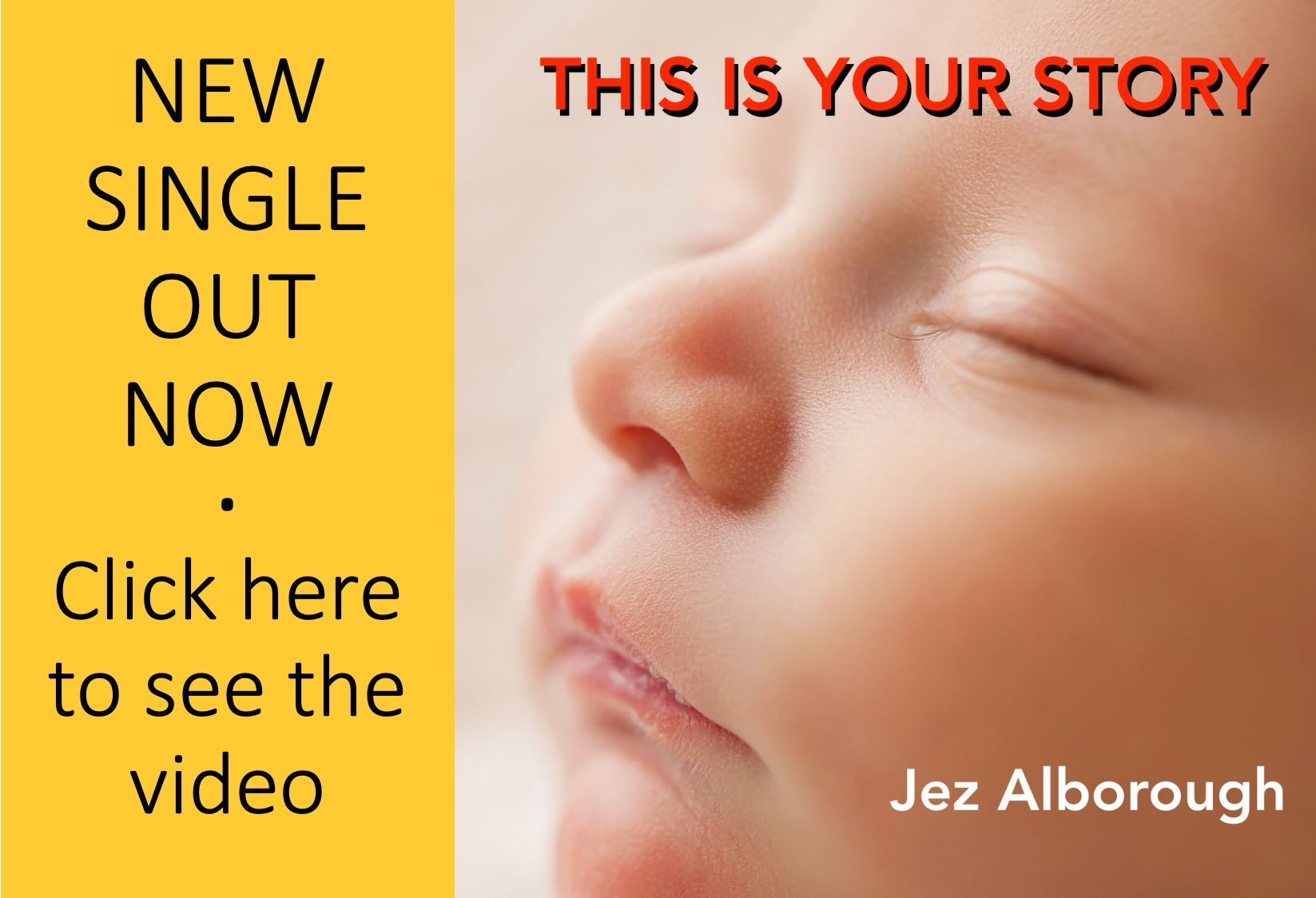MY BLOGS
Jez's Blog

Have you learnt anything new recently? I don’t mean about life (this is, of course, an ongoing process) but rather a new knowledge or skill? As we grow older and our student years fade into history it’s a position that we find ourselves in less often because by adulthood we have usually equipped ourselves with what we need to know to do what we want to do. But what we want to do can change and at these times we are beckoned out of our comfort zone and challenged to expand our knowledge and skill base.
I found myself in this position recently - I wanted to find out how to publish my writing (like this blog entry) on The CLUB. So my site manager Matthew and I spent a few days going through everything I would need to learn in order to take hold of the site management reins. It may not sound like much (and if you are a computer whizz kid I’m sure it isn’t) but for someone with only general computer skills like myself this was quite a mountain to climb. What seemed to me to be a simple job of posting a blog entry turned out to involve me looking ‘behind the curtain’ of the operating system and understanding a bit of how it worked; articles have to be inputted into the system, told where to appear on the site, pictures have to be put in as do links to other places in The CLUB, menus have to be updated, etc. To me this was a steep learning curve and I ended up with a whole file of checklists and notes detailing the procedures I had to become familiar with in order to achieve my goal of a certain amount of publishing autonomy.
Coincidentally, around this time my wife became ready to learn the basics of computing and so within two weeks I found myself in the roles of both student and teacher. These two experiences got me thinking about the psychology of learning - why and how we learn, what it demands of us and how liberating it can be. It also made me appreciate the subtle and varied skills which are involved in being a good teacher. Just because you know more than someone else about a subject doesn’t mean you are able to teach it to them – teaching is a whole skill in itself. So I dedicate my humble observations here to all the teachers out there who do such an important and skilled job in schools and adult education programmes.
READINESS IS EVERYTHING
From the outset it had been my intention to learn how to publish my own writing on the CLUB; over the last months Matthew has been through the process with me while I watched over his shoulder and took notes. However not much of what he showed me ‘went in’ and by the next day the notes had become a pretty meaningless series of instructions. I realise now that I wasn’t ready to learn it because I was lacking one important thing – motivation. I had no motivation because I didn’t have any need to learn the job because I knew Matthew would be there to do it for me. But since then there have been times when Matthew wasn’t available to input my writing and I felt frustrated that The CLUB was left without new material for those periods. My desire to be autonomous became my motivation to learn, and with this in place I was ready to learn.
MOTIVATION
Instead of just watching the job being done I was now ready to move into the driving seat, to swap places with my teacher and be at the controls of the computer. Now I was eager to take in what I was being shown and to actually experience doing it because I wanted to be sure I could do it when Matthew was not there. Without motivation there is no learning.
BEGINNER’S MIND
You could say that the starting point of learning is to first admit what we don’t know. In this sense learning requires of us a certain amount of humility, this is what the Zen tradition calls ‘beginners mind’ - it is a state of openess, receptiveness and trust in the teacher.
STAGES OF LEARNING
There are definite stages to learning - the first one is the hardest stage where everything that is encountered is new and foreign to the student. There is so much to take in and not much feeling of progress and this makes the going heavy.
Stage two may start in the second lesson where what has been learnt in the first one has sunk in a bit. Now the first glimmer of the feeling of achievement and progress can arise. This feeling can now feed back in to the process in a positive cycle which, along with motivation, gives the student the impetus and encouragement to keep moving forward to learn the next step.
NOT TOO MUCH AT A TIME
I’ve heard it said that 45 minutes is the maximum time for intense learning before a break is needed. Taking in new information takes a lot of energy; teachers have to be aware that there is only so much that a brain can take in at one time! If the lessons go on too long and the student is taken over his/her limit then the lesson becomes counterproductive - the brain refuses to take any more in and the student feels defeated and frustrated. (See resistance below). I’m reminded of a great Gary Larson cartoon which features a student in class with his hand up asking the teacher: ’Sir, I can I leave the room, my head is full!’
RESISTANCE
Learning usually involves some struggle with the subject we are trying to learn – moments when we ‘hit the wall’ and feel like no matter how hard we try we ‘just can’t get it’. It’s amazing what anger, frustration and even sadness can come up at these times - issues around limitations, confidence and self belief left over from our childhoods or schooling experience can surface. When these reactions are strong it’s best to have a break because emotion creates the exact opposite of the clear, receptive, alert state that is required in order for learning to happen. Once the emotion has been felt the student is confronted with the hard grind that learning can be where you just have to keep applying yourself even though the path feels uphill and difficult. Motivation doesn’t take resistance to difficult stages away but it gives you the willpower to keep pushing through them; to turn the frustration of ‘I just can’t get it’ into the joy of ‘I get it!’
EMPOWERMENT
The feeling that ‘I can do it’ touches us on a very deep level - it’s almost as if by succeeding in learning one thing we open the door to the possibility that we could learn anything we set our minds to. What an empowering thought that is. ‘Knowledge is power’ is a very practical and real truth.
THE TEACHER
Just as the student must be open and trusting to the teacher so the teacher has to have a certain sensitivity towards the student. If you picture the knowledge which the student has to learn as a hill to be climbed then the teacher must be aware at every point of the teaching where the student is on this hill because this tells them what they need to teach at any given moment so the student can make the next step upwards. If the teacher gets this wrong and jumps ahead too fast then what they are teaching becomes counterproductive as the student’s receptive learning state becomes subsumed by confusion and frustration.
Conversely the teacher also has to know when the student is on the verge of breaking through to understanding something and they need a bit of encouragement or a gentle push to keep going forward. Once again it is the teacher’s role to know what the student needs at each stage.
The sensitivity required of a good teacher comes from a remembrance that they too once had to learn what they are now teaching; this affords them a kindness, patience and respect towards the state of ‘beginners mind’. Recently my fifteen-year-old niece Lauren had a day of work experience at one of my publishers. When Lauren told me how this momentous day had gone I was very touched at the way the way the person who had shown her the ropes had made her so welcome. This was the first time that Lauren had ventured into the big wide world of the workplace and her nerves had obviously been soothed away, allowing her innate young talents to be called forward. When I subsequently met this person who looked after her, I realised that she was so young that it couldn’t have been that long since she was in that beginners position herself; I’m sure that not so distant memory contributed to making her such a good teacher to Lauren.
You could say that the teacher student relationship is a sacred bond built on trust - the student takes hold of the hand of the teacher and trusts them to guide them with their superior knowledge into their own understanding of the subject. To get a measure of how important a job this is just imagine the chaos of a world where there were no teachers!
July 2011
Footnote
You may wonder why someone like myself, who has never been to teacher training college, is writing about teaching in this way. My response is that this article is based on my personal experience of learning and teaching, and though it may be different to what a college might teach, it is still valid for what it is – a personal reflection on the subject. I would argue that when it comes to teaching the point is not the source of what is taught but whether it is true or not and that is for the individual to decide.
NEW ON THE SITE
HAVE YOU SEEN?







































